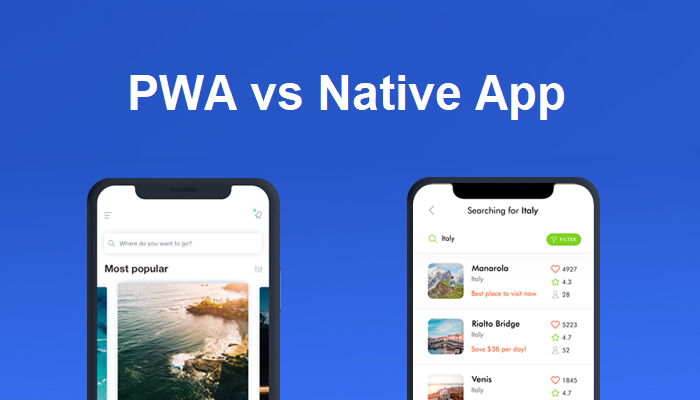Unveiling the Secrets of Ghosted Domains
Explore the intriguing world of expired domains and online opportunities.
Progressive Web Apps: The Future of Browsing Right Under Your Nose
Discover why Progressive Web Apps are revolutionizing browsing—unlock speed, offline access, and a seamless user experience today!
What Are Progressive Web Apps and How Do They Work?
Progressive Web Apps (PWAs) are innovative web applications that utilize modern web technologies to deliver an app-like experience directly from a web browser. Unlike traditional web apps or native applications, PWAs are designed to be responsive, fast, and capable of working seamlessly on any device, irrespective of the operating system. They combine the best features of both web and mobile apps, enabling users to install them on their home screens without going through an app store. By leveraging service workers, PWAs can provide offline functionality and improved performance, significantly enhancing user engagement and satisfaction.
So, how do Progressive Web Apps work? The core functionality of PWAs relies on three key technologies: Service Workers, Web App Manifests, and HTTPS.
- Service Workers: These are scripts that run in the background, allowing PWAs to handle caching, push notifications, and background synchronization, even when the app is not actively used.
- Web App Manifests: This JSON file contains metadata about the app, such as its name, icons, and theme colors, ensuring a cohesive user experience.
- HTTPS: PWAs must be served over a secure connection to ensure user security and privacy.

The Benefits of Progressive Web Apps: Why You Should Care
Progressive Web Apps (PWAs) are transforming the way businesses interact with users. By combining the best features of both web and mobile applications, PWAs deliver a smooth, app-like experience directly from a web browser. The benefits of Progressive Web Apps include increased engagement and enhanced performance, allowing them to load quickly even on slow networks. This leads to lower bounce rates and higher conversion rates for businesses that adopt this innovative technology.
Another significant advantage is their cross-platform compatibility. PWAs work seamlessly across all devices and operating systems, eliminating the need for separate native applications. Users can easily access PWAs without the hassle of installation, allowing for faster interaction. As a result, PWAs can improve user retention and satisfaction, making them a strategic choice for businesses aiming to provide a superior user experience.
Comparing Progressive Web Apps to Native Apps: Which is Right for You?
Progressive Web Apps (PWAs) have gained significant attention as a modern alternative to traditional native apps. One of the main advantages of PWAs is their ability to provide a seamless experience across different devices without the need for app store downloads. They are built using standard web technologies like HTML, CSS, and JavaScript, allowing for easier updates and maintenance. PWAs also offer features like offline access, push notifications, and faster loading times, making them a strong contender for businesses looking to enhance user engagement.
On the other hand, Native Apps are specifically designed for particular operating systems, such as iOS or Android, and can leverage the full capabilities of the device, including advanced features like camera access, GPS, and biometric authentication. While they tend to deliver superior performance and a more optimized user experience, native apps require separate development efforts for different platforms, which can increase costs and time-to-market. Ultimately, the choice between PWAs and native apps hinges on your specific needs and target audience, considering factors like budget, desired features, and user engagement strategies.